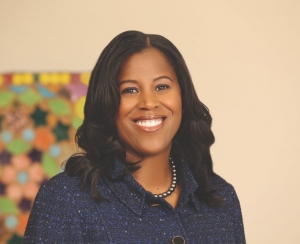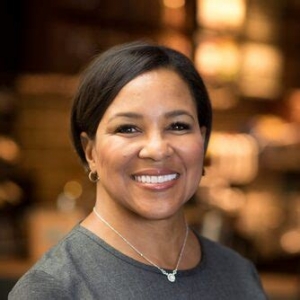Black Women Leaders Making History
Two black women just got promoted to CEOs of Fortune 500 companies – THAT is making history! They follow the first ever black woman CEO of a Fortune 500 company Ursula Burns who was CEO of Xerox from 2009-2016.
The 2020 Fortune 500 list of companies has only five black men as CEOs and only 38 women as CEOs. Historically women and people of color in the United States have faced great challenges and a much harder path toward leading a large company than the white men who dominate those positions. Now in 2021 we get to celebrate the appointment of two black women CEOs to Fortune 500 companies: Rosalind ‘Roz’ Brewer and Thasunda ‘T’ Brown Duckett. Thasunda Brown Duckett will take the helm at financial firm TIAA and Rosalind Brewer will take the helm at Walgreens. Given my work coaching and teaching leadership communication, I love exploring examples of pioneering leaders.
Both of these women came from humble upbringings and have worked tirelessly to build strong careers helping companies gain success. In addition to helping their companies succeed, they both have been advocates for gender and racial equity.
While stories of these two black women have been all over the press in the recent past, I am compelled to celebrate their success by highlighting their perspectives on leadership. In a country struggling with systematic racism and in need of strong leaders, I am so grateful for Duckett and Brewer for pioneering new paths to the top spots in American industry.
Quick Snapshot
Rosalind Brewer on Leadership
Rosalind Brewer describes herself as a servant leader with the purpose of serving the people on her team. In an interview at the Aspen Institute titled Race, Reckoning, and Leadership in Tough Times Brewer explained how personally impactful the Starbucks crisis caused by employees calling the police on two black men in a store back in 2018 was for her. She felt both responsible in her leadership position and pained because her son was the same age as the black men. She helped the company to significantly shift in response to that crisis – starting with closing all stores and immediately doing training. When asked what three traits makes a perfect leader, Brewer responded:
- High Integrity
- Selfless Servant
- Authenticity
She mentioned that high integrity is important because there will always be times of pressure and it is in those moment that it is ‘all about the decisions you make’. She sees herself as a selfless servant there to help people on her team succeed. She sees authenticity in someone who ‘knows themselves more than anyone else’ and it is a critical element to leading others.
In describing in greater detail her role as a servant leader during a Stanford Graduate School of Business View from the Top interview, Brewer said, “They got to know I have their back every day.” She explained that she still remembered what it was like to work in some of the unfortunate jobs. She mentioned that early in her career, “I had to do some of the toughest, dirtiest jobs, but it gave me a chance to learn; I put that to work every day and look at is as a blessing.” Remembering that, she intentionally takes the perspectives of the people who work at all levels of her organization.
Thusunda Brown Duckett on Leadership
Thusunda Brown Duckett sees her purpose in life to inspire others and her passion is to help everyone achieve financial security. She often says that she stands on the shoulders of giants and expresses gratitude for all those who have supported her in her pursuit of the American dream. She helped foster the development of careers for black people and women through the Black Pathways Program and Women on the Move programs at Chase. And she started the Otis and Rosie Brown Foundation in Arlington, TX for supporting students of all backgrounds.
When asked about the many awards she received, Duckett commented, “When I can represent being a powerful woman in banking or being a top African American, I think it just gives a nod to possibility for other women or people who may share a similar story.”
Given the financial hardships she experienced as a child, prosperity as a means to address racial equity is important to Duckett. She addresses that topic head on in a recent LinkedIn post: The bridge to racial equity starts with financial health The first step is taking a hard look at the wealth disparities for black Americans created by systematic racism. “That requires moving beyond the ingrained perception that talking about money and race is taboo, and that financial hardship results simply from bad personal decisions. It also requires moving beyond a culture with the prevailing ideology that success comes simply from individual responsibility.”
In an interview with Operation Hope, Duckett shared her perspective on leadership. She stated, “I rent my title, I own my character.” She explained that she understands that titles are owned by companies, but people have ownable assets – character, purpose, passion. When you show up with your ownable assets you can be authentic and make a real sustainable difference.
Leadership Communication Skills
In addition to being incredible leaders, both of these people are also incredible communicators. Three excellent leadership communication techniques I notice both women use:
- Repetition of key messages through multiple media outlets and mediums
- Strong posture and powerful nonverbal communication, such as sitting with legs square and uncrossed and using hand motions at chest level
- Commanding verbal communication with wide vocal variance of tone and volume
These are truly inspirational black women making history. I look forward to watching them thrive and lead others to do the same in the next decade.


